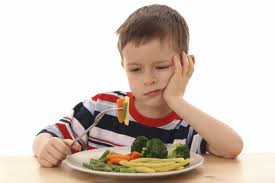
If you’re doing your best to raise healthy, adventurous, confident eaters, you probably have all kinds of strategies and approaches in place to support that goal. Since I spend so much time suggesting ways to get your kids eating better, I thought this week I’d highlight a few things you might be inadvertently doing to sabotage your efforts.
Here are 5 practices that can really throw a wrench into your hard work:
1. Rewarding healthy eating with treats or dessert: We all feel wrong about allowing our children to skip the veggies and go straight to ice cream, and that’s not at all what I’m suggesting. The problem is, rewarding with dessert means kids are eating veggies for the wrong reasons, and aren’t developing a healthy habit, but instead an unhealthy pattern. Occasional dessert and treats can be part of a healthy home, but kids shouldn’t be eating them if they’re not eating healthy foods most of the time and they need to understand the “why” instead of it just being ”the rule”. Explain to your children that their bodies can handle a little sugar or “junk” but only if they’ve got a bank account full of all the vitamins and minerals they need to process that not-so-
healthy stuff. It’s all about balance — if over the course of the day and week they are eating enough of the “good stuff”, they can handle a treat, but if the balance is off, their bodies won’t have what they need to stay healthy and energized.

2. Requiring kids to clean their plates: We all want our kids to eat lots of good food, but if we always require a “clean plate” we can inadvertently squash their natural satiety cues. I meet a lot of adults who have completely lost their hunger cues and are eating either because “it’s time” or they feel like eating for emotional reasons. This means they are never really hungry because they are eating all day long and are often overweight as a result. Kids know when they are full and we need to respect that and teach them to respect it too. To ensure your child is actually full and not just trying to get out of eating their veggies, make sure they’re hungry when they sit down, keep the portions reasonable and offer more once they’ve eaten what’s on their plate.
3. Serving children and adults different food: Bad idea on so many levels! You are setting a pattern that will soon become your downfall, and putting your children in control of food. There’s a balance to be found here: if you have less-than-adventurous eaters, just give them a little serving of a new food but require them to try it (taste and swallow!), and maybe save the haggis for your next adult-only dinner party!

4. Over-portioning new foods: If you pile your child’s plate with a new food, and they are a more selective eater, they will likely feel overwhelmed and destined to fail, and won’t be motivated to even try it. If you give them only a small amount, they are much more likely to feel like “they can do it” and give it a try, which gives you an opportunity to praise, which in turn increases the likelihood they’ll have a little more or eat it the next time with a little less fuss.
5. Over-snacking: Healthy snacks are important to ensuring your children have a steady stream of energy over the course of the day. But children who graze all day long, and especially just before meals, aren’t coming to the table hungry and are much less likely to eat their balanced, main meals. Keep snacking to regular times, once or twice a day, and you’ll have better success at mealtime.
For more tips and yummy kid-tested recipes, check out my website at www.simple- balance.ca or follow me on Facebook at simplebalance.
Wendy McCallum, LLB, RHN, is passionate about providing busy parents with the tools & support they need to feed their families wholesome food, so everyone can play, learn, and feel better! She is a mother of two terrific nine-year old kids. For information and recipe ideas, visit her website or pick-up her cookbook

